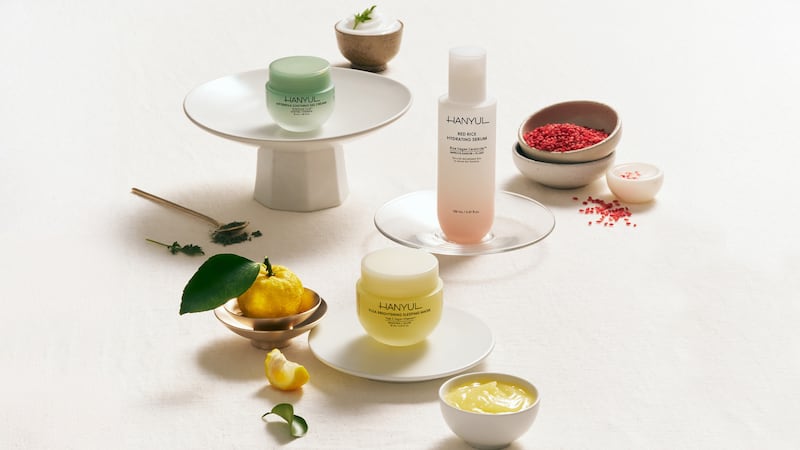Mushroom coffee is pretty much everywhere by now—from the beverage aisle of the grocery store to your favorite healthy cafe. Its recent popularity has led to a global market for mushroom coffee that’s projected to reach $1.8 billion by 2031. It’s safe to say that the mushroom coffee phenomenon is real—but are there any real benefits to actually drinking fungi-infused beverages? Here, experts weigh in on the benefits of mushroom coffee.
What is mushroom coffee?
Mushroom coffee is made with medicinal mushrooms like lion’s mane, reishi, chaga, shiitake, or maitake—all of which have been used for millennia for their various supposed health properties. “Mushroom coffee is made by combining coffee with dried mushroom powders to offer the ancient benefits of these mushrooms in a convenient format with a flavor that’s practically imperceptible—although some describe it as slightly earthy or nutty,” says nutritionist Marta Marcè. “It promises everything from greater concentration to a strengthened immune system.”
The benefits of mushroom coffee
Among the benefits attributed to this concoction are better mental and physical performance, a stronger immune system, an improved sense of calm, and a boosted metabolism—depending on the types of mushrooms in the coffee, of course.
Sounds great, but there isn’t yet a ton of evidence to back up all the claims. “The idea behind mushroom coffee is simple: to harness the health benefits of medicinal mushrooms in a convenient and (hopefully) tasty coffee drink,” writes Lindsay Warner of Harvard Health. “There is very little research on medicinal mushrooms involving humans. Therefore, while test tube or animal studies show some compelling health benefits, the same may not apply to people.”
Is mushroom coffee worth a try?
The big question is whether the active ingredients in the medicinal mushroom powders can be properly absorbed by the body. “If the powder is simply dried and ground mushroom (not extracted), absorption is very limited,” says Marcè. “The rigid cell wall of mushrooms—known as the chitin—may hinder the release of the active compounds during digestion and, in that case, the body hardly accesses the attributed immunological or cognitive benefits. Moreover, many brands do not specify whether they have used the fruiting body of the mushroom (the visible part) rich in active principles, or the mycelium (root system), which is usually much less potent,” she says.
Another important consideration? “Most mushroom coffees on the market include between 250 mg and 500 mg of extract per cup, an amount well below the doses used in scientific studies that have observed real benefits,” Marcè points out.
Should you drink mushroom coffee?
It is undeniable that mushrooms have many proven health benefits. However, both Warner and Marcè point out that there hasn’t been any research done on the benefits of mushroom coffee specifically—so, there is no guarantee that the medicinal properties of mushrooms are preserved when processed and mixed with coffee. There just isn’t any demonstrable proof of the clear benefits.
That said, it’s probably not the worst thing in the world to substitute your usual coffee with mushroom coffee—especially if you like the taste and don’t mind the higher price point. Mushroom coffee may also contain a lower dose of caffeine than regular coffee, which might be helpful if you’re trying to cut back or are sensitive to the stimulant.
Other ways of consuming medicinal mushrooms
Beyond coffee, medicinal mushrooms can be consumed in capsules, extracts, tablets, and in cooked dishes. They are also increasingly popular as an ingredient in beauty products. However, Marcé points out that the most effective consumption method is usually in the form of nutritional supplements since the active ingredients are better released after extraction with hot water or alcohol.
The most commonly used medicinal mushrooms are:
- Lion’s Mane for cognitive support and mental well-being. It may stimulate the production of nerve growth factor, offering the potential to improve memory and concentration.
- Maitake for immunity and glycemic control. Maitake has been studied for its ability to improve insulin sensitivity and support metabolic balance.
- Shiitake for immunomodulatory and antioxidant properties.
- Reishi, an adaptogen that may be useful in stressful situations and also for the immune system. It is rich in antioxidants and polysaccharides that modulate the immune response and reduce inflammation.
- Cordyceps, which has been linked to improved physical performance and cardiovascular health.
Are there any contraindications for medicinal mushrooms?
Although medicinal mushrooms are safe for most people, experts say there are some situations where caution is advisable, including:
- Interactions with anticoagulant or antidiabetic drugs (such as warfarin or insulin), since some mushrooms can enhance their effects.
- They are not recommended in people with autoimmune diseases or taking immunosuppressants.
- Pregnancy and lactation. There is a lack of evidence about its safety in these stages.
- As with any functional ingredient, it is essential to look for quality products, consult with a medical professional, and understand that their benefits are usually subtle, cumulative, and part of a comprehensive health approach.
In any case, nutritional trends should be approached with discernment and should never be used to replace the tried-and-true wellness basics: a balanced diet, adequate sleep, and sufficient exercise. It’s always a good idea to do your own research. Don’t rely on social media or even ChatGPT, which may not be up-to-date or accurate when it comes to scientific evidence. Whether mushroom coffee is a fad or a fact, only time (and more scientific studies) will tell.








